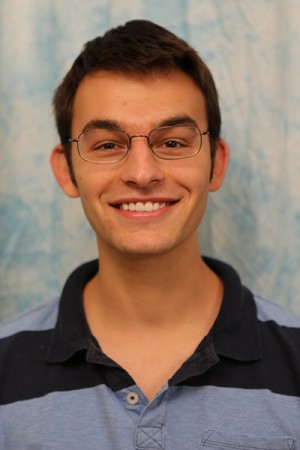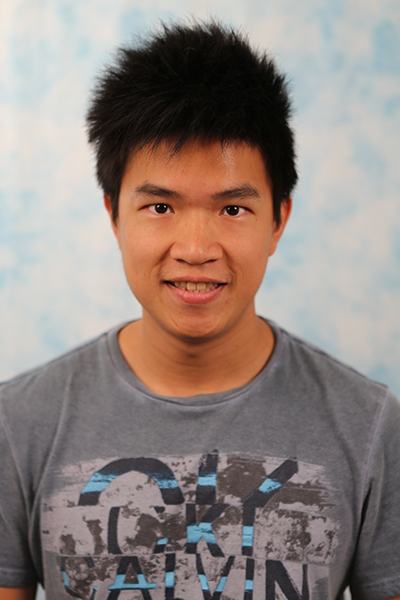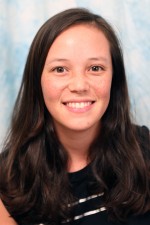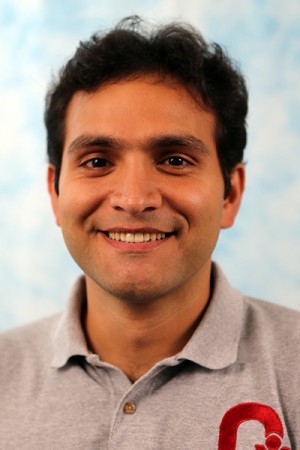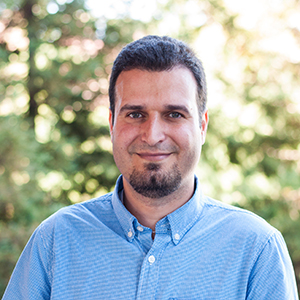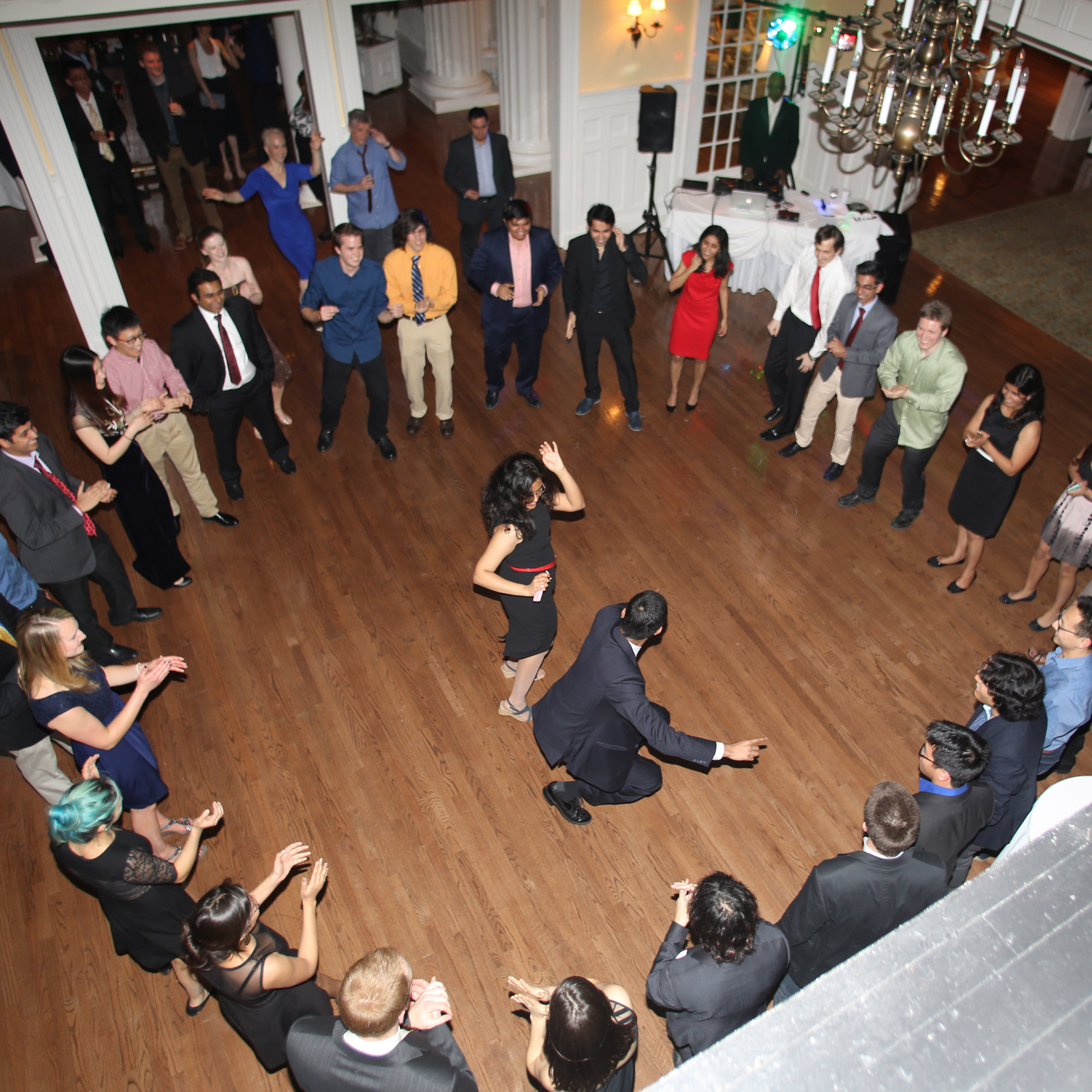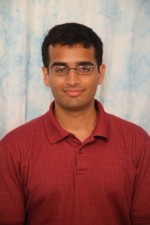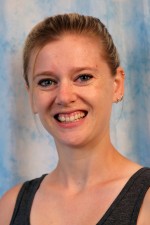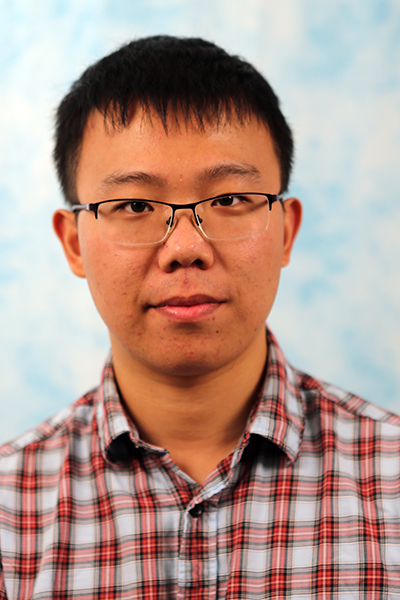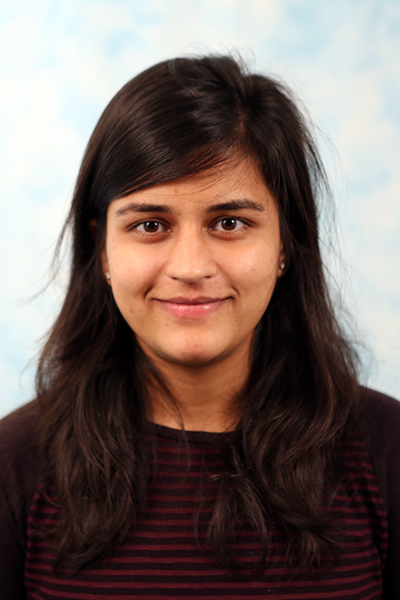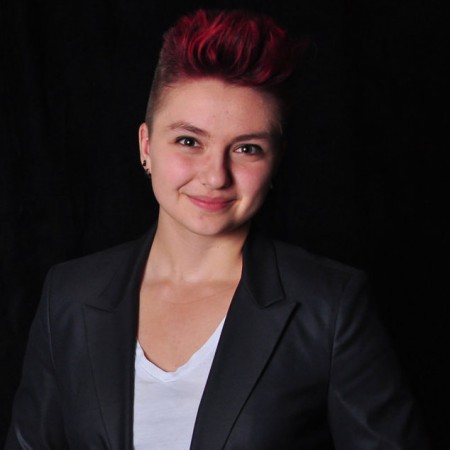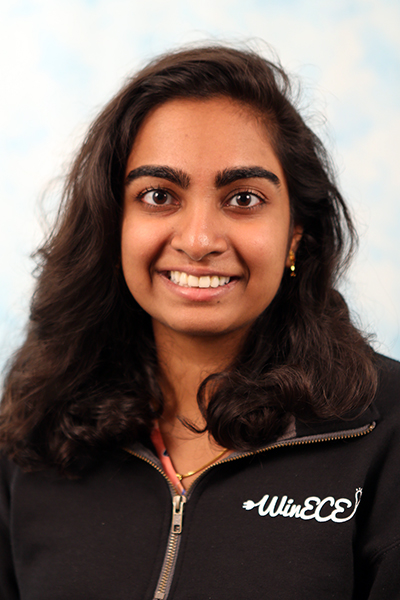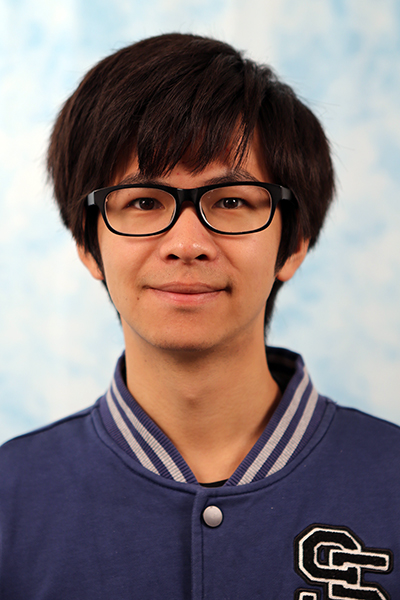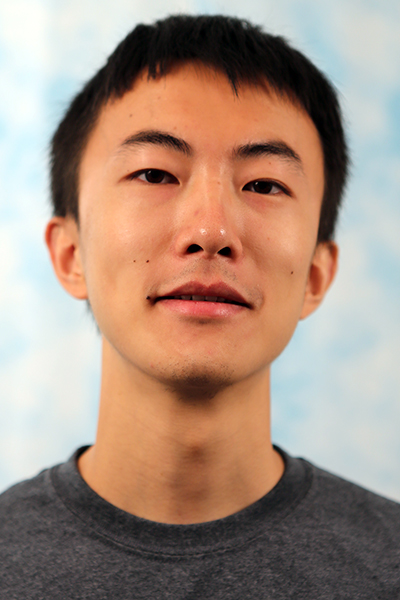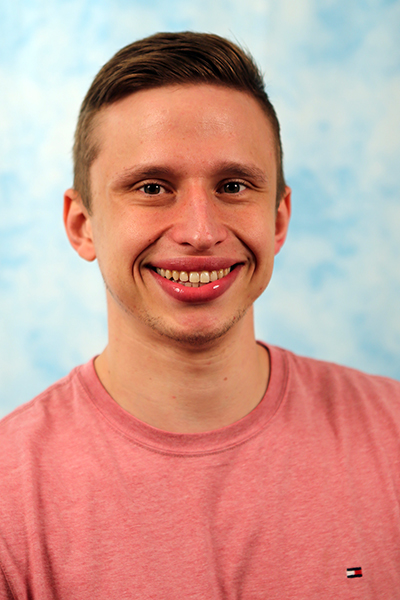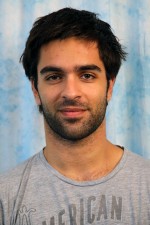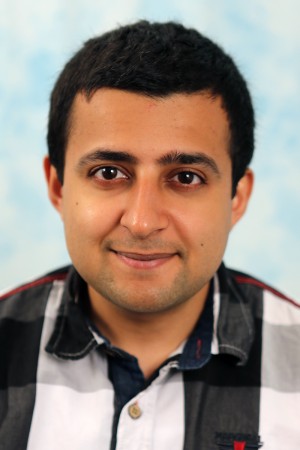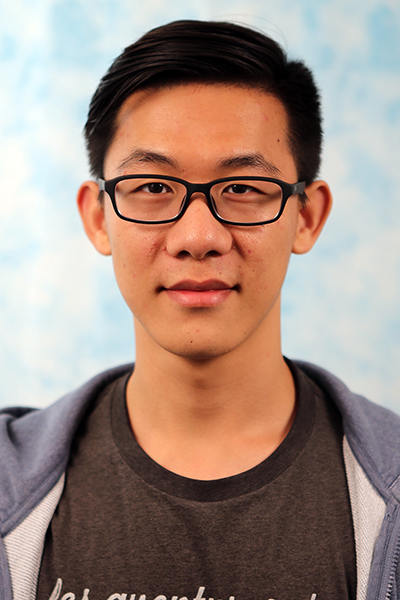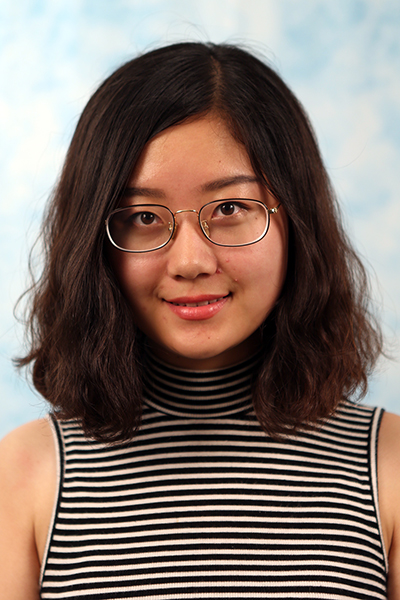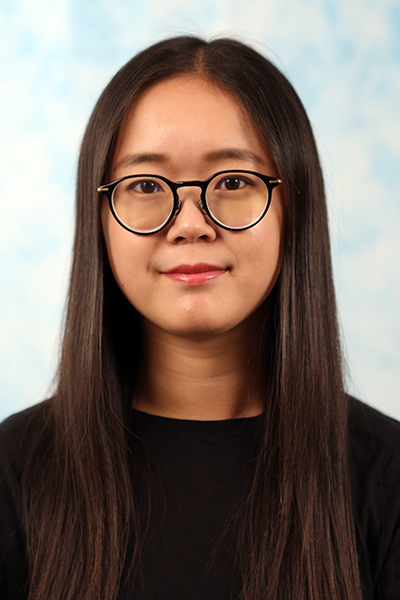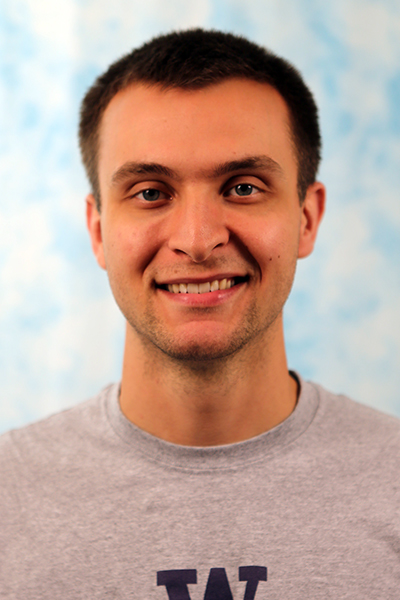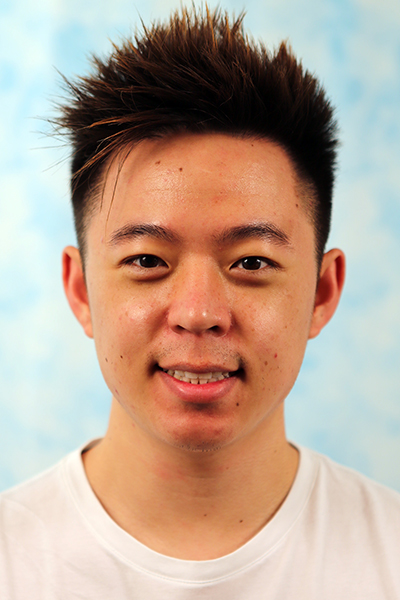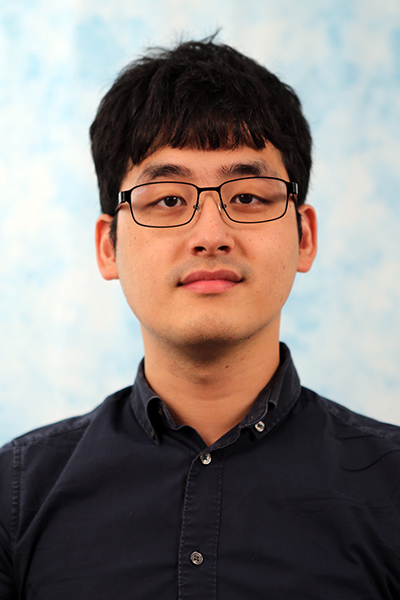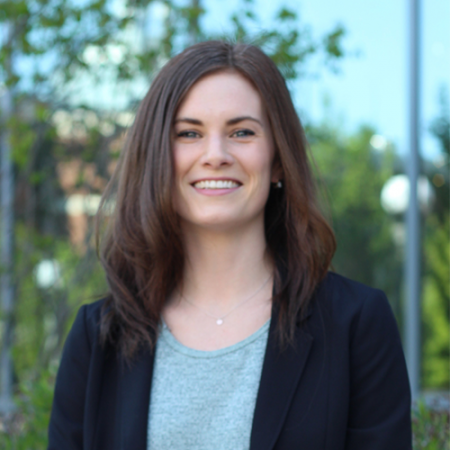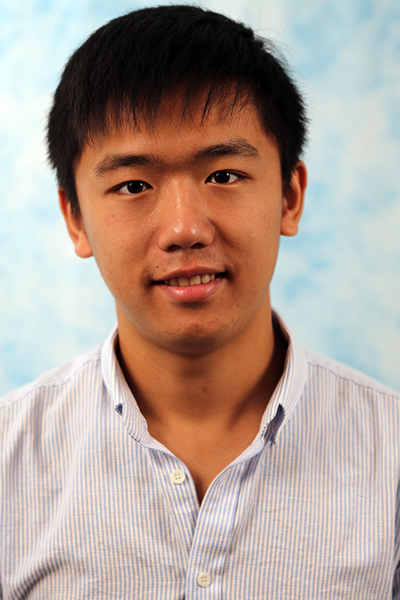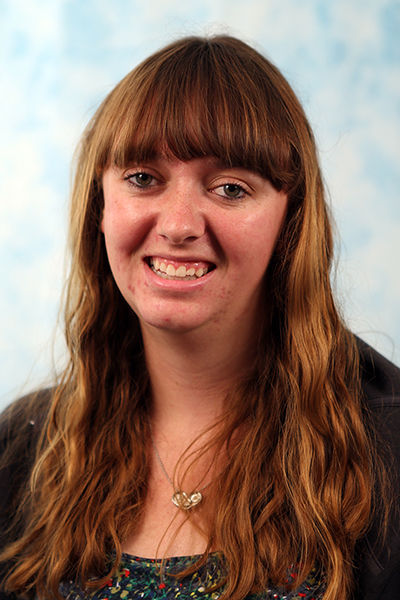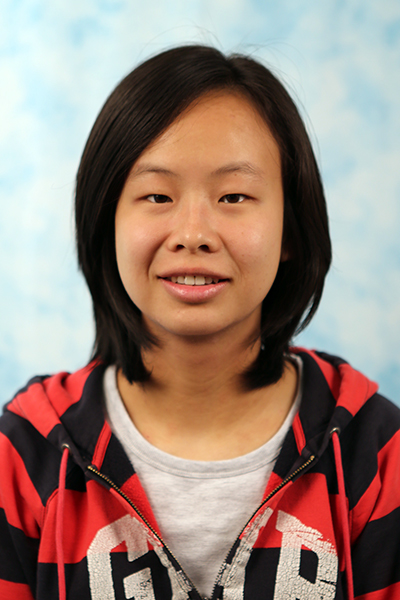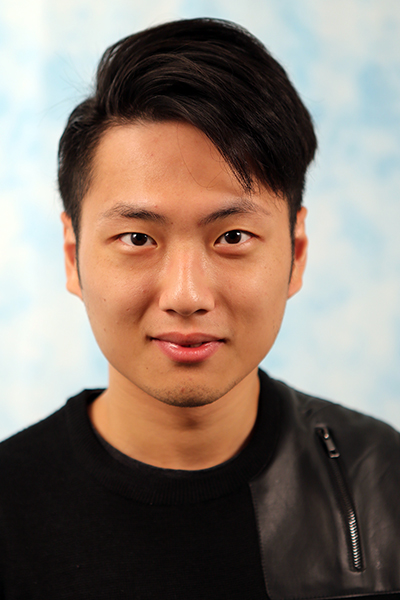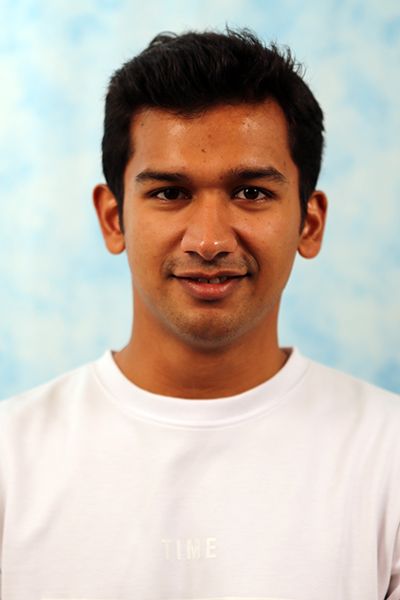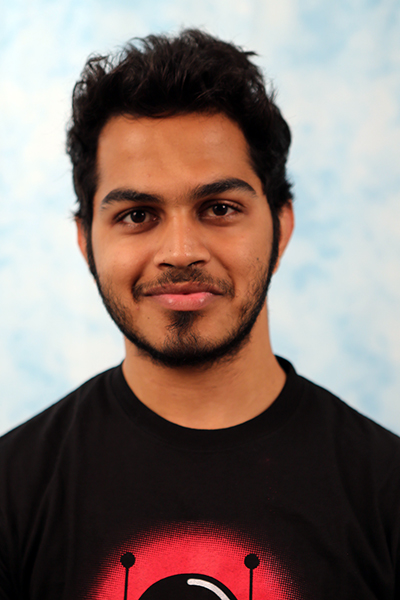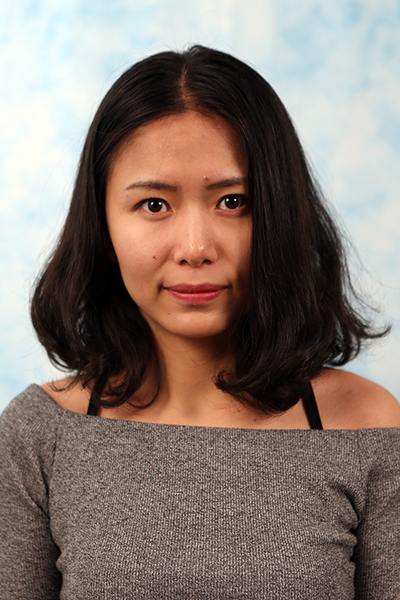Carnegie Mellon University
Improving Multirotor Trajectory Tracking Performance using Learned Dynamics Models
Abstract: Multirotors and other aerial vehicles have recently seen a surge in popularity, partly due to a rise in industrial applications such as inspection, surveillance, exploration, package delivery, cinematography, and others. Crucial to multirotors' successes in these applications, and enabling their suitability for other applications, is the ability to accurately track trajectories at high speed [...]
Carnegie Mellon University
Learning to Align without Geometric Supervision
Abstract: Extracting geometric information from image data is a highly nonlinear problem that exhibits in a number of visual recognition tasks such as object localization, facial landmark tracking and human pose estimation. Successful alignment across image data often serves as a crucial component in making them possible. In this talk, I will present how one [...]
Carnegie Mellon University
Hybrid Soft Sensing in Robotic Systems
Abstract: The increasing prevalence of wearable technology in our daily lives has created a demand for safe and robust sensing skins. Largely inspired by human skin, the ultimate goal of electronic skins is to measure diverse sensory information, conform to surfaces, and avoid interfering with the natural mechanics of the host or user. These demands [...]
Carnegie Mellon University
Automatic Real-time Anomaly Detection for Autonomous Aerial Vehicles
Abstract: The recent incidents with Boeing 737 Max 8 aircraft have raised concerns about the safety and reliability of autopilots and autonomous operations. There is a growing need for methods to monitor the status of aircraft and report any faults and anomalies to the human pilot or to the autopilot to deal with the emergency [...]
Creative Robots with Deep Reinforcement Learning
Recent advances in Deep Reinforcement Learning (DRL) algorithms provided us with the possibility of adding intelligence to robots. Recently, we have been applying a variety of DRL algorithms to the tasks that modern control theory may not be able to solve. We observed intriguing creativity from robots when they are constrained in reaching a certain [...]
2019 Robotics Institute Semi-formal
By invitation only: The 2019 Robotics Institute Semi-formal Robotics Institute members and a guest are invited to join us for our annual semi-formal! Join us for an evening of music, fun, food and friends! Food and beverage will include: hot hors d’oeuvres, stations for carving, pasta, fruit, cheese, coffee and dessert and hosted non-alcoholic beverages. [...]
Teruko Yata Memorial Lecture – Understanding Human Behavior for Robotic Assistance and Collaboration
Speaker: Henny Admoni, Assistant Professor, Robotics Institute Carnegie Mellon University Title: Understanding Human Behavior for Robotic Assistance and Collaboration . Human-robot collaboration has the potential to transform the way people work and live. Researchers are currently developing robots that assist people in public spaces, on the job, and in their homes. To be effective assistants, these robots [...]
2019 RI National Robotics Week Celebration
The Robotics Institute will celebrate the tenth annual National Robotics Week on April 11 & 12 with lectures, project demonstrations, the annual Mobot (mobile robot) races, and a reception for RI affiliated people. REGISTRATION IS NOW OPEN REGISTER HERE If you have any specific questions about the National Robotics Week open house please email Debbie [...]
Carnegie Mellon University
Towards Safe and Robust Behavior Mixing for Multi-Robot Systems
Abstract: Multi-robot systems have been widely studied for extending its capability of accomplishing complex tasks through cooperative behaviors. In large-scale multi-robot behavior mixing, the heterogeneous robotic team executes simultaneously multiple behaviors or sequences of behaviors with various task-prescribed controllers in real time to increase efficiency in parallel tasks. Key to the success of behavior mixing [...]
Carnegie Mellon University
Design and Evaluation of Robust Control Methods for Robotic Transfemoral Prostheses
Abstract: Amputees face a number of gait deficits due to a lack of control and power from their mechanically-passive prostheses. Of crucial importance among these deficits are those related to balance, as falls and a fear of falling can cause an avoidance of activity that leads to further debilitation. In this thesis, we investigate the [...]
Carnegie Mellon University
Vigneshram Krishnamoorthy – MSR Thesis Talk
Title: A Computational Framework for Norm-Aware Reasoning in Autonomous Systems Abstract: Autonomous agents are increasingly deployed in complex social environments where they not only have to reason about their domain goals but also about norms that can impose constraints on task performance. Integrating task planning with norm aware reasoning is a challenging problem due to [...]
Carnegie Mellon University
Deep Reinforcement Learning Representations for Robotics
Abstract: A long standing goal of robotics research is to create algorithms that can automatically learn complex control strategies from scratch. Part of the challenge of applying such algorithms to robots is the choice of representation. While RL algorithms have been successfully applied to many robotics tasks such as Ball-in-a-Cup and various RoboCup soccer domains, [...]
Carnegie Mellon University
Speeding Up Search-based Motion Planning Via Conservative Heuristics
Abstract: Weighted A* search (wA*) is a popular tool for robot motion-planning. Its efficiency however depends on the quality of heuristic function used. In fact, it has been shown that the correlation between the heuristic function and the true cost-to-goal significantly affects the efficiency of the search, when used with a large weight on the [...]
Carnegie Mellon University
Learning multi-robot behaviors for online control
Abstract: Finding dynamically feasible and safe global plans for multi-agent teams in real world applications is enormously difficult because the decision branching factor, when considering all possible interactions across agents and an environment, is usually intractable. Humans, however, have great success in the multi-agent planning domain by using behaviors: practiced, coordinated responses for groups of [...]
Carnegie Mellon University
Routing for Persistent Exploration in Dynamic Environments with Teams of Energy-Constrained Robots
Abstract: In domains requiring effective situational awareness with limited resources, prioritizing focus is critical. Search and rescue tasks require fast identification of safe avenues for rescuers to traverse the area. Inspection tasks must realize trends over long durations to identify issues caused by the confluence of high-stress modes that compound into catastrophic failure. Deploying robots [...]
Carnegie Mellon University
Intra-Robot Replanning and Learning for Multi-Robot Teams in Complex Dynamic Domains
Abstract: In complex dynamic multi-robot domains, there is a set of individual robots that must coordinate together through a centralized planner that inevitably makes assumptions based on a model of the environment and the actions of the individual. Eventually, the individuals may encounter failures, because the centralized planner’s models of the states and actions are [...]
Carnegie Mellon University
Toward a New Type of Agile and Dexterous Mobile Manipulator
Abstract: Mobile robot bases have been developed over many decades, but only recently have researchers added arms to these bases, opening up the rich field of mobile manipulation. Most of these robots either need wide, heavy, statically-stable bases that may or may not be omnidirectional to support the arms and provide stability. Such robot bases, [...]
Carnegie Mellon University
Light Sheet Depth Imaging
Abstract: Once confined to industrial manufacturing facilities and research labs, robots are increasingly entering everyday life. As specialized robots are developed for tasks such as autonomous driving, package delivery, and aerial videography, there is a growing need for affordable depth sensing technology. Robots use sensors like scanning LIDAR, depth cameras, and passive stereo cameras to [...]
Carnegie Mellon University
Towards Generalization and Efficiency in Reinforcement Learning
Abstract: In classic supervised machine learning, a learning agent behaves as a passive observer: it receives examples from some external environment which it has no control over and then makes predictions. Reinforcement Learning (RL), on the other hand, is fundamentally interactive: an autonomous agent must learn how to behave in an unknown and possibly hostile [...]
Carnegie Mellon University
Akshat Agarwal – MSR Thesis Talk
Title: Learning Transferable Cooperative Behavior in Multi-Agent Teams Abstract: We study the emergence of cooperative behavior and communication protocols in multi-agent teams, for collaboratively accomplishing tasks like coverage control and formation control for swarms. Using graph neural networks to model inter-agent communications, we present state-of-the-art results in a fully decentralized execution framework which assumes [...]
Carnegie Mellon University
Yifan Ding – MSR Thesis Talk
Title: Decentralized Multiple Mobile Depots Route Planning for Replenishing Persistent Surveillance Robots Abstract: Persistent surveillance of a target space using multiple robots has numerous applications. The continuous operation in these applications is challenged by the limited onboard battery capacity of the persistent robots. We consider the problem for replenishing persistent robots using mobile depots, [...]
Active Learning in Robot Motion Control
Abstract: Motion motivated by information needs can be found throughout natural systems, yet there is comparatively little work in robotics on analyzing and synthesizing motion for information. Instead, engineering analysis of robots and animal motion typically depends on defining objectives and rewards in terms of states and errors on states. This is how we formulate [...]
Carnegie Mellon University
Tanya Marwah – MSR Thesis Talk
Title: Generating 3D Human Animations from Single Monocular Images Abstract: Endowing AI systems with the ability to formulate a three-dimensional understanding of human appearance from a single RGB image is an important component technology for applications such as person re-identification, biometrics, virtual reality and augmented reality. However, jointly inferring the texture map and 3D [...]
Human-guided Task Transfer for Interactive Robots
Abstract: Adaptability is an essential skill in human cognition, enabling us to draw from our extensive, life-long experiences with various objects and tasks in order to address novel problems. To date, most robots do not have this kind of adaptability, and yet, as our expectations of robots’ interactive and assistive capacity grows, it will be [...]
Pragna Mannam – MSR Thesis Talk
Title: Model-free Sensorless Manipulation Abstract: This thesis is a study of 2D manipulation without sensing and planning, by exploring the effects of unplanned randomized action sequences on 2D object pose uncertainty. Our approach uses sensorless reorienting of an object to achieve a determined pose, regardless of the initial pose. Without using sensors and models [...]
Carnegie Mellon University
Gines Hidalgo Martinez – MSR Thesis Talk
Title: OpenPose: Whole-Body Pose Estimation Abstract: We present the first single-network approach for 2D whole-body (body, face, hand, and foot) pose estimation, capable of detecting an arbitrary number of people from in-the-wild images. Our method maintains constant real-time performance regardless of the number of people in the image. This network is trained in a [...]
RI Faculty Social
All Robotics Institute faculty are invited to attend this informal team-building business/social event. Beverages and snacks will be provided.
Donglai Xiang – MSR Thesis Talk
Title: Monocular Total Capture: Pose Face, Body, and Hands in the Wild Abstract: We present the first method to capture the 3D total motion of a target person from a monocular view input. Given an image or a monocular video, our method reconstructs the motion from body, face, and fingers represented by a 3D deformable [...]
Carnegie Mellon University
Wentao Yuan – MSR Thesis Talk
Title: 3D Shape Completion and Canonical Pose Estimation with Structured Neural Networks Abstract: 3D point cloud is an efficient and flexible representation of 3D structures and the raw output of many 3D sensors. Recently, neural networks operating on point clouds have shown superior performance on various 3D understanding tasks, thanks to their power to [...]
Carnegie Mellon University
Planning under Uncertainty with Multiple Heuristics
Abstract: Many robotic tasks, such as mobile manipulation, often require interaction with unstructured environments and are subject to imperfect sensing and actuation. This brings substantial uncertainty into the problems. Reasoning under this uncertainty can provide higher level of robustness but is computationally significantly more challenging. More specifically, sequential decision making under motion and sensing uncertainty [...]
Rawal Khirodkar – MSR Thesis Talk
Title: Leveraging Simulation for Computer Vision Abstract: A large amount of labeled data is required to train deep neural networks. The process of data annotation on such a large scale is expensive and time-consuming. A promising alternative in this regard is to use simulation to generate labeled synthetic data. However, a network trained solely [...]
Carnegie Mellon University
Dexterous Manipulation via Simple Robot Hands
Abstract: Most of the industrial robotic applications nowadays can only deal with pick-and-place manipulation, in which fixed graspings are the only interactions between the object and the robot hand. Simple hands, such as pinch grippers and suction cups, suffice to accomplish such tasks. However, there exist many unsolved automation problems where more dexterous manipulations are [...]
Carnegie Mellon University
Maximilian Sieb – MSR Thesis Talk
Title: Visual Imitation Learning for Robot Manipulation Abstract: Imitation learning has been successfully applied to solve a variety of tasks in complex domains where an explicit reward function is not available. However, most imitation learning methods require access to the robot's actions during demonstration. This stands in a stark contrast to how we [...]
Carnegie Mellon University
Enabling Role-Reversible Human-Robot Interaction by Leveraging Standardized Tools for Provider-Receiver Interactions
Abstract: Developing 'social intelligence' for assistive robots to seamlessly interact with humans remains an open research challenge. However, socially assistive robots typically engage in types of interactions that already exist between humans, which makes models of human-human interactions useful to inform the design of robot social behaviors. In particular, in applications such as healthcare, therapy [...]
Carnegie Mellon University
Nikhil Jog – MSR Thesis Talk
Title: Highly Miniaturized Robots for Inspection of Small Nuclear Piping Abstract: Bomb making in the 20th century resulted in the creation of massive facilities to produce Uranium. As part of a multi-billion-dollar agenda, the measurement of radioactivity is required for the safe disposal of residual Uranium in piping. Manual techniques have proven too approximate, [...]
Carnegie Mellon University
Contrastive View Predictive Learning with 3D-Bottlenecked RNNs
Abstract: In this talk, I will describe our recent work on neural architectures for visual recognition, which use 3D not as input nor as the desired output space, but rather as the bottleneck of the learned representations. We consider embodied agents moving in otherwise static worlds equipped with these architectures; they learn 3D visual feature [...]
Chao Cao – MSR Thesis Talk
Title: Topological Path Planning for Mobile Robot Applications Abstract: Many path planning problems in mobile robot applications can be solved more efficiently in the topological space. By using the language of topology, the richer spatial information failed to captured by graph/grid-based map representations can be explicitly expressed and exploited. With that, it is possible [...]
Carnegie Mellon University
MSR Thesis Talk – Tao Chen
Title: Deep Reinforcement Learning with Prior Knowledge Abstract: Deep reinforcement learning has been applied to many domains from computer games, natural language processing, recommendation systems to robotics. While model-free reinforcement learning algorithms are promising approaches to learning policies without knowledge of the system dynamics, they usually require much more data. In this thesis, we [...]
Carnegie Mellon University
Towards Understanding and Mitigating Biases
Abstract: There are many problems in real life that involve collecting and aggregating evaluation from people, such as conference peer review and peer grading. In this thesis, we consider multiple sources of biases that may arise in this process: (1) human bias -- the data collected from people are noisy and reflect people's calibration criteria [...]
Toward Intent Recognition through Nonverbal Behaviors in Assistive Co-Manipulation
Abstract: Robots are becoming more versatile, increasing the available opportunities to use them in situations that aid people in everyday tasks. For example, recent research has investigated robot manipulators for assisting people with motor impairments in activities of daily living such as eating a meal. To form successful collaborations in these interactions, researchers need to [...]
Carnegie Mellon University
Anqi Yang – MSR Thesis Talk
Title: 3D Object Detection from CT Scans using a Slice-and-fuse Approach Abstract: Automatic object detection in 3D X-ray Computed Tomography imagery has recently gained research attention due to its promising applications in aviation baggage screening. The huge dimension of an individual 3D scan, however, poses formidable computational challenges when coupled with deep 3D convolutional [...]
Carnegie Mellon University
Tian Ye – MSR Thesis Talk
Title: Interpretable Intuitive Physics Model Abstract: Humans have a remarkable ability to use physical commonsense and predict the effect of collisions. But do they understand the underlying factors? Can they predict if the underlying factors have changed? Interestingly, in most cases humans can predict the effects of similar collisions with different conditions such as changes [...]
Carnegie Mellon University
Rotational Distributions for Pose Estimation
Abstract: For robots to operate robustly in the real world, they should be aware of their uncertainty, particularly when estimating the position and orientation, or pose, of objects. This uncertainty can be caused by many factors, such as occlusions, poor lighting, or object symmetry. These factors can naturally induce an inherent ambiguity in terms of [...]
Carnegie Mellon University
Hunter Goforth – MSR Thesis Talk
Title: Learning for Registration in 2D and 3D Abstract: We explore the application of deep learning to 2D (image) and 3D (point cloud) registration, especially in scenarios where traditional methods can fail. In the 2D case, we apply a recently-proposed learning method to the problem of aligning outdoor imagery taken across different seasons or [...]
Carnegie Mellon University
Manipulation Planning using Pushing or Pulling Primitives
Abstract: Humans manipulate objects using a wide range of actions, such as grasping, pushing, pulling, in-hand rolling, and more. This observation has lead to much research about modeling and learning individual manipulation actions. To better understand the impact of action models on planning and executing manipulation actions, we applied manipulation planning with pushing and pulling [...]
Event Cameras: Image Reconstruction, Convolutions and Color
Abstract: Event cameras are novel, bio-inspired visual sensors, whose pixels output asynchronous and independent timestamped spikes at local intensity changes, called ‘events’. Event cameras offer advantages over conventional frame-based cameras in terms of latency, high dynamic range (HDR) and temporal resolution. Event cameras do not output conventional image frames, thus, image reconstruction from events enables [...]
Yeeho Song – MSR Thesis Talk
Title: Inverse Reinforcement Learning for Autonomous Ground Navigation Using Aerial and Satellite Observation Data Abstract: Inverse Reinforcement Learning(IRL) is a supervised learning paradigm where a learner observes expert demonstrations to learn the hidden cost function to mimic the expert's behavior. Eliminating the need for elaborate feature engineering, deep IRL approaches have been gaining interests [...]
From Farm to Takeoff: Ground and Aerial Robots for Biological Systems Analysis
Abstract: Biological and agricultural environments are dynamic, unstructured, and uncertain, posing challenges for environmental data collection at the necessary spatial and temporal scales to enable meaningful systems analysis. Small unmanned systems, however, can overcome some of these challenges by enabling autonomous or human-assisted image-based and in situ environmental data collection. This talk will present a suite of [...]
Carnegie Mellon University
Satyaki Chakraborty – MSR Thesis Talk
Title: Detecting objects in videos under occlusion Abstract: While object detection in videos has received a lot of attention in the past few years, most existing methods in this domain do not target detecting objects when they are occluded. However, being able to detect or track an object of interest through occlusion has been [...]
Carnegie Mellon University
MSR Thesis Talk – Junjiao Tian
Title: Detailed Image Captioning with Hierarchical Attention Abstract: Automatic image description is the task of generating a natural sentence which reflects the visual content of an image. A lot of deep learning architectures have been explored in the past few years. While researchers have made great improvement on generating syntactically correct sentences by learning from [...]
Carnegie Mellon University
Analysis of Spatio-Temporally Varying Features in Optical Coherence Tomographic (OCT) and Ultrasound (US) Image Sequences
Abstract: Optical Coherence Tomography (OCT) and Ultrasound (US) are non-ionizing and non-invasive imaging modalities that are clinically used to visualize anatomical structures in the body. OCT has been widely adopted in clinical ophthalmology due to its micron-scale resolution to visualize in-vivo structures of the eye. Ultra-High Frequency Ultrasound (UHFUS) captures images of tissue at a [...]
Carnegie Mellon University
MSR Thesis Talk – Karen Orton
Title: Inching for Planetary Rovers Abstract: . Inching, also called push-rolling, is method of moving for vehicles that can change the position of their wheels relative to their body. Like an inchworm, it is possible to hold some wheels stationary while advancing the others and the body. In this research a test apparatus capable [...]
RI Faculty Social
All Robotics Institute faculty are invited to attend this informal team-building business/social event. Beverages and snacks will be provided.
Sha (Yisha) Yi – MSR Thesis Talk
Title: Improving Scalability in Multi-Robot Systems with Abstraction and Specialization Abstract: Planning and controlling multi-robot systems is challenging due to high dimensionality. When the number of robots increases in the system, the complexity of computation grows exponentially. In this thesis, we examine the scalability problem in planning and control of the multi-robot system. We propose [...]
Carnegie Mellon University
MSR Thesis Talk – Andy (Chieh-En) Tsai
Title: A Generative Approach for Socially Compliant Navigation Abstract: Robots navigating in human crowds need to optimize their paths not only for the efficiency of their tasks performance but also for the compliance to social norms. One of the key challenges in this context is due to the lack of suitable metrics for evaluating and [...]
Carnegie Mellon University
Shubham Agrawal – MSR Thesis Talk
Title: 3D Face Geometry Capture Using Monocular Video Abstract: Accurate reconstruction of facial geometry has been one of the oldest tasks in computer vision. Despite being a long-studied problem, many modern methods fail to reconstruct realistic looking faces or rely on highly constrained environments for capture. High fidelity face reconstructions have so far been [...]
Carnegie Mellon University
Tejas Khot – MSR Thesis Talk
Title: Unsupervised Learning for 3D Reconstruction and Blocks World Representation Abstract: Recovering the dense 3D structure of a scene from its images has been a long-standing goal in computer vision. Recent years have seen attempts of encoding richer priors into the geometry-based pipelines with the introduction of learning based methods. We argue that the form of 3D [...]
Tracking Beyond Detection
Abstract: The majority of existing vision-based methods perform multi-object tracking in the image domain. Yet, in mobile robotics and autonomous driving scenarios, pixel-precise object localization and trajectory estimation in 3D space are of fundamental importance. Furthermore, the leading paradigms for vision-based multi-object tracking and trajectory prediction heavily rely on object detectors and effectively limit tracking [...]
Carnegie Mellon University
Yubo Zhang – MSR Thesis Talk
Title: A structured model for action detection Abstract: A dominant paradigm for learning-based approaches in computer vision is training generic models, such as ResNet for image recognition, or I3D for video understanding, on large datasets and allowing them to discover the optimal representation for the problem at hand. While this is an obviously attractive approach, [...]
Carnegie Mellon University
Nilesh Kulkarni – MSR Thesis Talk
Title: Canonical Surface Mapping via Geometric Cycle Consistency Abstract: We explore the task of Canonical Surface Mapping (CSM). Specifically, given an image, we learn to map pixels on the object to their corresponding locations on an abstract 3D model of the category. But how do we learn such a mapping? A supervised approach would [...]
